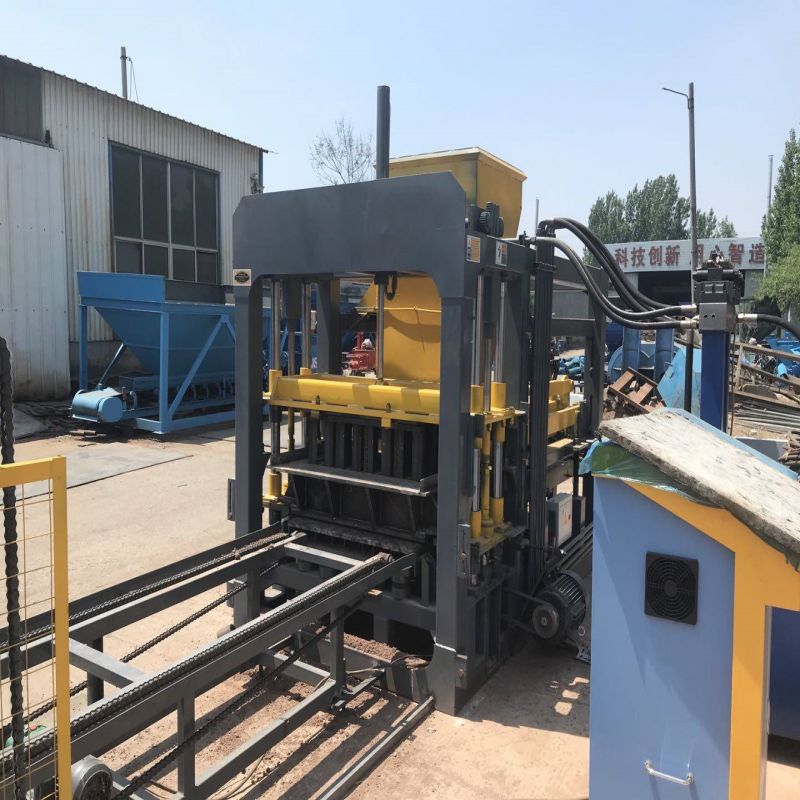
Image source:Aiweiblockmachine
Introduction
The construction industry in many African nations is experiencing significant growth, driven by urbanization, infrastructure development, and a rising demand for affordable housing. Within this dynamic context, block making businesses have emerged as key players, offering solutions that are not only cost-effective but also sustainable. This article presents case studies of successful block making businesses in various African countries, shedding light on their innovative approaches, impact on local communities, and contributions to the broader construction sector.
1. Hydraform in South Africa
Background: Hydraform, an international company with a presence in South Africa, specializes in the production of interlocking block making machines.
Success Factors:
- Innovative Technology: Hydraform’s interlocking blocks offer strength and stability, reducing the need for mortar and speeding up construction.
- Local Adaptation: The company has tailored its machines to suit local conditions and uses locally sourced materials.
- Employment Generation: By training and employing local workers, Hydraform contributes to job creation and skills development.
2. RedBrick in Nigeria
Background: RedBrick, based in Nigeria, focuses on sustainable block production using renewable energy sources.
Success Factors:
- Solar-Powered Production: RedBrick’s use of solar-powered block making machines reduces operational costs and environmental impact.
- Affordable Housing: The company’s commitment to affordable housing has helped address Nigeria’s housing deficit.
- Local Empowerment: By training locals to operate and maintain the equipment, RedBrick fosters local expertise and economic growth.
3. Interlocking Innovations in Kenya
Background: Several Kenyan entrepreneurs and businesses have embraced interlocking block technology for sustainable construction.
Success Factors:
- Community Engagement: Local involvement and community buy-in have been essential for the success of these businesses.
- Affordability: Interlocking blocks have made housing more affordable, particularly for low- and middle-income families.
- Skills Development: Training programs have empowered individuals to become skilled block makers, creating employment opportunities.
4. GreenBricks in Tanzania
Background: GreenBricks, a Tanzanian company, is known for its environmentally friendly and energy-efficient block production.
Success Factors:
- Eco-Friendly Practices: GreenBricks’ use of alternative building materials and energy-efficient technologies reduces environmental impact.
- Partnerships: Collaborations with NGOs and government initiatives have expanded the reach of sustainable construction practices.
- Quality Assurance: Strict quality control measures ensure that blocks meet the necessary standards for durability.
5. Block Masters in Ghana
Background: Block Masters, a Ghanaian business, specializes in producing high-quality blocks for construction projects.
Success Factors:
- Quality Assurance: Block Masters’ commitment to quality has earned it a reputation for producing durable and reliable blocks.
- Market Penetration: The company has successfully penetrated the local market and supplied blocks for major infrastructure projects.
- Community Impact: Block Masters provides employment opportunities and contributes to the economic development of the region.
6. Local Innovations in Rwanda
Background: Rwanda has seen the rise of local block making businesses, contributing to its post-conflict reconstruction and urban development.
Success Factors:
- Local Entrepreneurship: Rwandan entrepreneurs have played a pivotal role in establishing block making businesses.
- Post-Conflict Recovery: These businesses have contributed to the rebuilding efforts in the aftermath of the Rwandan genocide.
- Sustainability: By using locally available materials and adopting sustainable practices, these businesses align with Rwanda’s commitment to green construction.
Conclusion
The case studies presented here demonstrate the significant impact of successful block making businesses in African nations. These businesses not only provide affordable housing solutions but also contribute to job creation, skills development, and sustainable construction practices. As African countries continue to urbanize and invest in infrastructure, these businesses are poised to play an increasingly crucial role in shaping the continent’s built environment and fostering economic growth.
